Five Films for Freedom: A look back at 10 years of queer stories
Briony Hanson, the head of film for the British Council, takes a look back at some of the movies featured in Five Films for Freedom so far

Over the past nine years there’s been a quiet revolution happening across the globe. Queer film stories have been playing on laptops, phones, and big screens in some of the world’s most surprising, most anti-LGBTQ+ places.
It’s thanks to Five Films for Freedom, a joint programme between the British Council and BFI Flare, London’s LGBTQIA+ Film Festival. Launched in 2015, it sees five short films from BFI Flare made accessible around the world during the festival each year. So far, it has pulled in 23 million viewers, some of whom are online, while others attend screenings that take place everywhere from the UK’s Houses of Parliament to a Ugandan garden in front of a small group of secret queer film fans.
“It’s been a revelation to watch Five Films for Freedom grow”
When the Five Films series started, I was new to the organisation and had a view of what projects we do and what we don’t. I was so wrong. We do have an appetite for risk, especially when championing human rights, even in places where those rights are heavily restricted. The British Council, a 90-year-old traditional institution, has had teams in more than 100 countries sharing the films far and wide, so that queer people everywhere have a chance to see their lives reflected on-screen. It is eye-opening to consider just how far these films have travelled. To see candid snapshots of groups watching, sometimes in secret, or to know that the films are being shared online in places where it’s a real challenge to be LGBTQ+, is sobering and inspiring.
We’ve been voguing in Paris; visited a lesbian bike repair shop in Detroit; watched a Nigerian Gaydar- style date go wrong; learnt about a young Greek boy with a goldfish called Tom Daley; met a cheeky trans activist in Oxford; watched an older Spanish man coming out to his son; and learnt about a lovesick Korean lesbian punk singer.
Personally, it’s been a revelation to watch Five Films for Freedom grow, and it’s been a great opportunity to combine social messaging with the best of world cinema.
Here are just a few of the films we have showcased.
2015: Chance, written and directed by Jake Graf (UK)
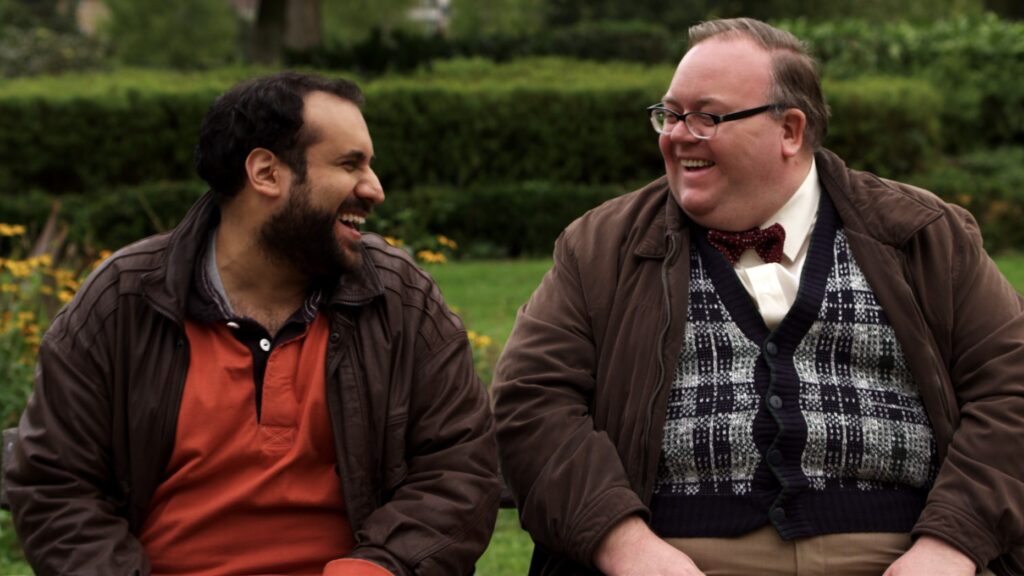
Graf is a brave filmmaker who populates this short with lead characters who don’t conform to conventional beauty standards. Using an unusual pairing of a plus-sized older man and a young refugee, Graf created a compelling human tale of two strangers who meet and help each other to live again. What impressed me was that it isn’t afraid to spend time with a depressed leading character and watch him find happiness. Everyone appreciated the redemption. A story that could have gone so wrong turned out so right in the end. We all need those stories!
While many budding filmmakers start out with a project that tells a version of their personal story, it’s refreshing that Graf chose to make this a queer story about two men, without bringing in a trans element. After all, why should trans people only make films about trans people?
2015: Code Academy, directed by Nisha Ganatra (US)

In this take on the future, the gender disparity gap is addressed by separating boys and girls until they’re 18 years old so they can be educated about the biases that are in-built into society. However, this plan goes awry when the girls and boys manage to create a secret hook-up point in cyberspace. The film explores adolescence, the formation of gender identity, and the role of the internet in the teen years.
Everyone loves a high-school movie — and they loved this one. I already knew of Ganatra’s work, having hosted a riotous screening of her feature Chutney Popcorn at BFI Flare many years previously. Code Academy has a similar cheeky, fast-paced vibe. It’s witty and sharp and feels like a proper filmmaker is in the director’s chair. It’s a beautiful, queer take on high school long before Sex Education and Heartstopper jumped into the genre.
2016: Take Your Partners, directed by Siri Rødnes (UK)
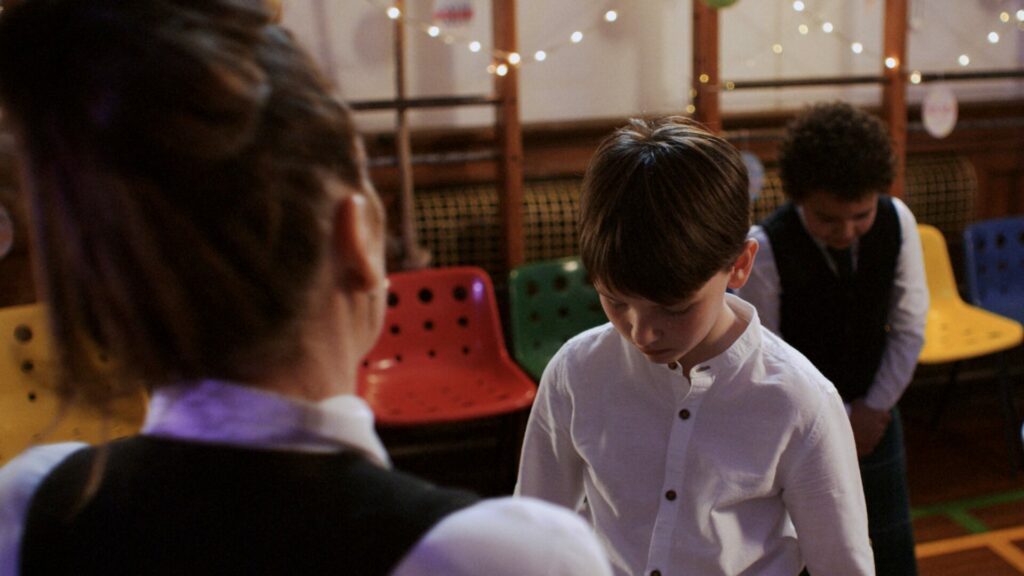
This film follows a non-conforming eight-year-old as they bravely subvert gender norms when making an Easter bonnet. It was fresh from the edit suite when it was screened at BFI Flare and came with an authentic feel as it was crowdfunded and involved a range of children, parents and guardians at LGBT Youth Scotland and the youth film group Into Film.
It features a really surprising turn from its young lead, Lily Graham, clearly a child who’s going places and who rightly collected a Bafta Scotland New Talent award for her performance. Some of my best Five Films for Freedom picks feature young voices and leave audiences with a sense of optimism — and this was one of the first to suggest that there is hope for change. Rødnes is a filmmaker with a real future, and this work shows they know how to get the best out of a cast, and how to do a lot with a small budget.
2018: Goddess/Devi, directed by Karishma Dev Dube (India)
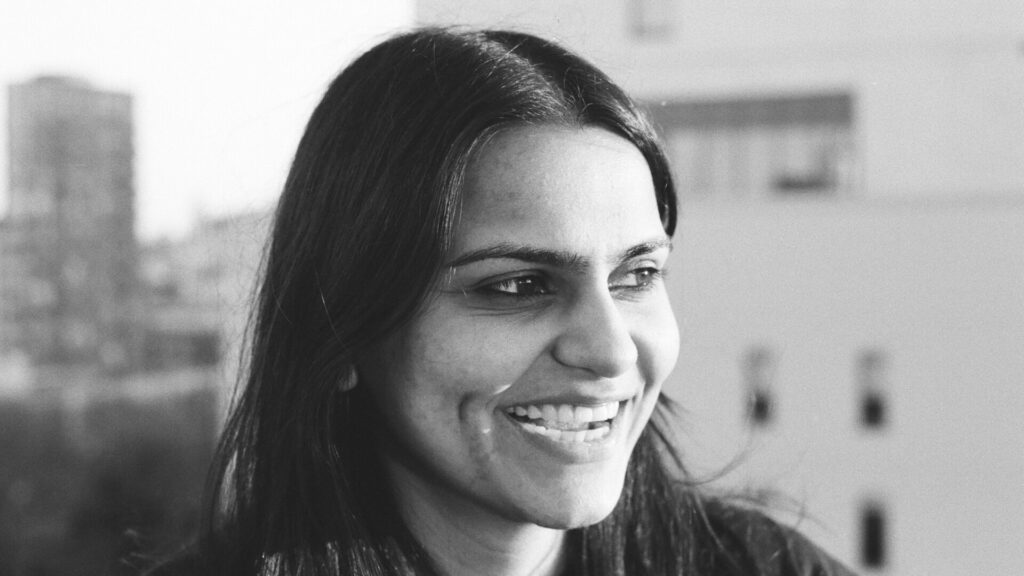
Set in New Delhi, this romantic story sees a closeted lesbian develop feelings for her maid, Devi, and risk everything. The intersection of class and sexuality make for good drama, and it opens a window into a way of life alien from my own. Lesbians are used to a world of pain and grim endings, but this film feels fearless and positive. To see an optimistic view of a relationship between two beautiful women is a really warm experience. It has strong performances, strong direction, and a strong script. Magic!
This was the first Indian film we’d found for the Five Films for Freedom selection and, silly as it sounds, we hadn’t realised the impact selecting a film from such a vast country would have. Nearly three million people watched the film in a single week after Jio Cinema (an Indian mobile phone platform) embedded it, with audiences raving about it.
2019: I (EG), directed by Hall Tryggvadottir (Iceland)
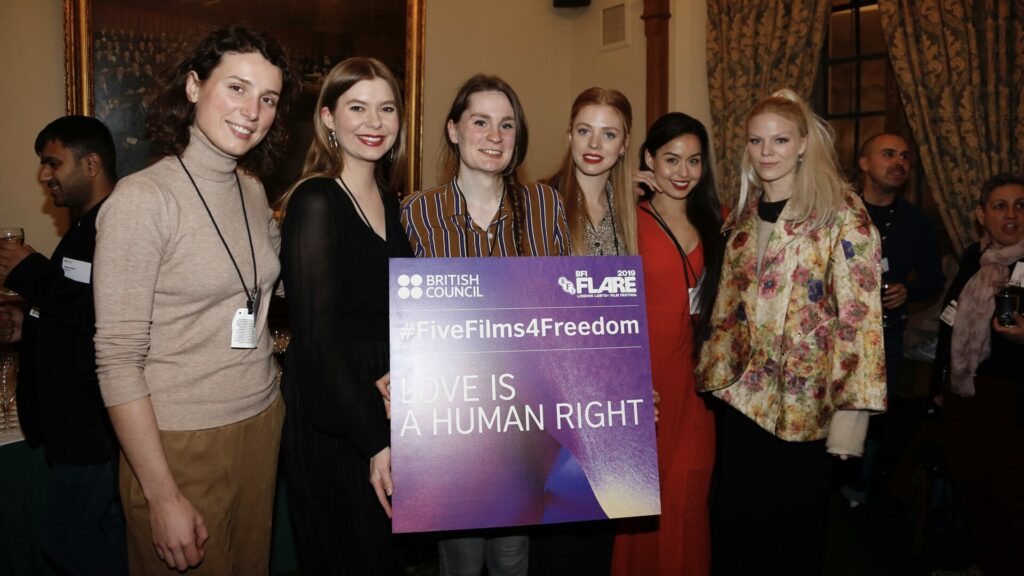
This simple story about a young trans person who leaves their small town to seek the freedom to be themself in the city is not terribly unfamiliar, but it’s told in such a gentle way that it feels different. The beauty of Five Films for Freedom is that it gives viewers a window into other cultures, and sometimes that difference is acute. We expect there to be differences in queer stories from places like Nigeria or Guyana compared to those from ‘safe’ European countries. But more surprising with I (EG) is the otherworldly quality of the beautiful Icelandic location, which feels culturally different to the stories most of us get to see on our screens, and with a lead character who seems to really belong in it. The whole filmmaking team joined us in London and made a stirring case for trans inclusion in film.
2020: After That Party, directed by Caio Scot (Brazil)
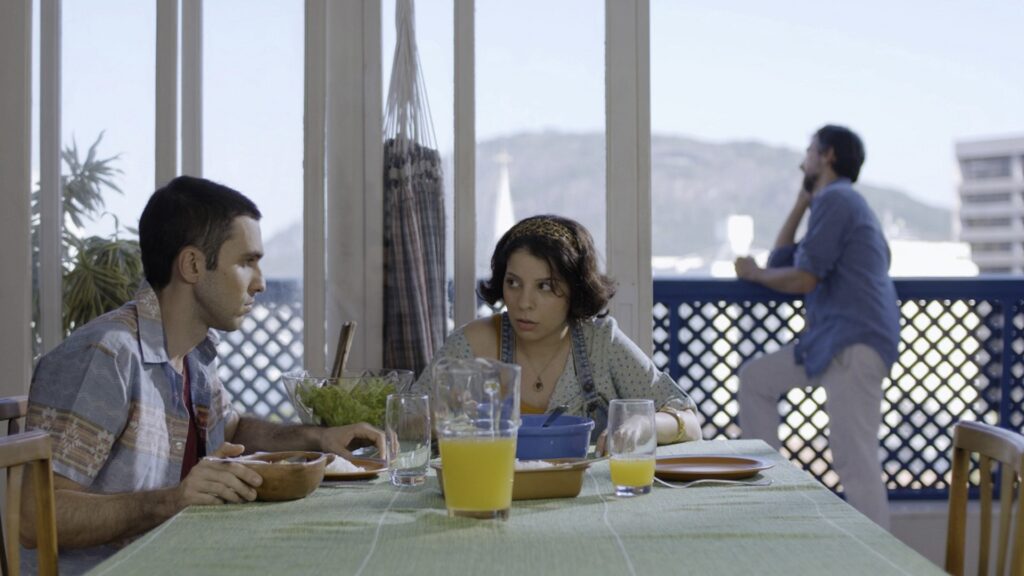
What’s great about After That Party is it’s told from a different perspective. This isn’t the tale of a dad coming out to his son; it’s the story of a son revealing that he knows the truth about his father and is figuring out how to accept and celebrate that. It puts you in the shoes of a straight son who just wants his father to be truthful, and explores how queer lives encounter different challenges at different ages. Five Films has a big task in appealing to multiple audiences and satisfying queer viewers who may be looking for particular narratives, while not frightening off straight audiences who may be seeing stories like these for the first time. After That Party found fans in all camps, who loved that the film had a light and fun tone when telling its potentially difficult story.
020: When Pride Came to Town, directed by Julia Dahr & Julie Lunde Lillesæter (Norway)
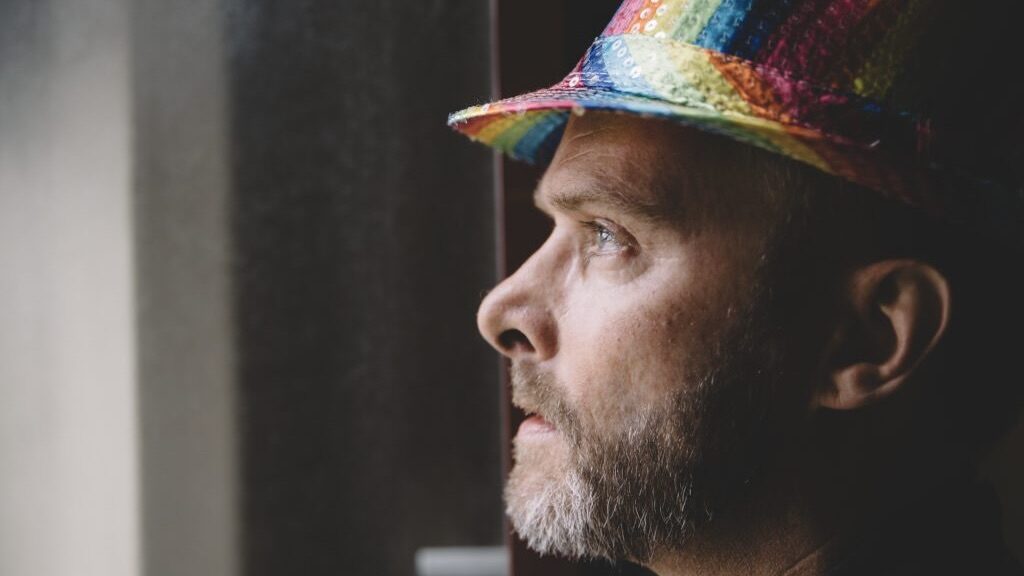
We’re always looking for documentaries as it’s harder to argue with facts when you see real people living real lives on screen. We’re also aware, with the whole programme, that we often all come to it with preconceptions about how hard queer people’s lives in the global south are, while the global north has it ‘sorted’. When Pride Comes to Town is the story of the queer community in safe, cosy, liberal Norway.
The film faces head-on the division between religion and sexuality in a truly non-judgemental way, giving all sides an opportunity to speak and finds some surprising truths along the way. I’ve often shed a tear watching films in our selection — we’ve been introduced to some lovely people who are making a real difference. Our lead here is a middle-aged man who runs from rural hell to live his best queer life but feels it’s important to go back for Rural Pride. I was charmed and inspired in equal measure.
2021: Victoria, directed by Daniel Toledo (Spain)
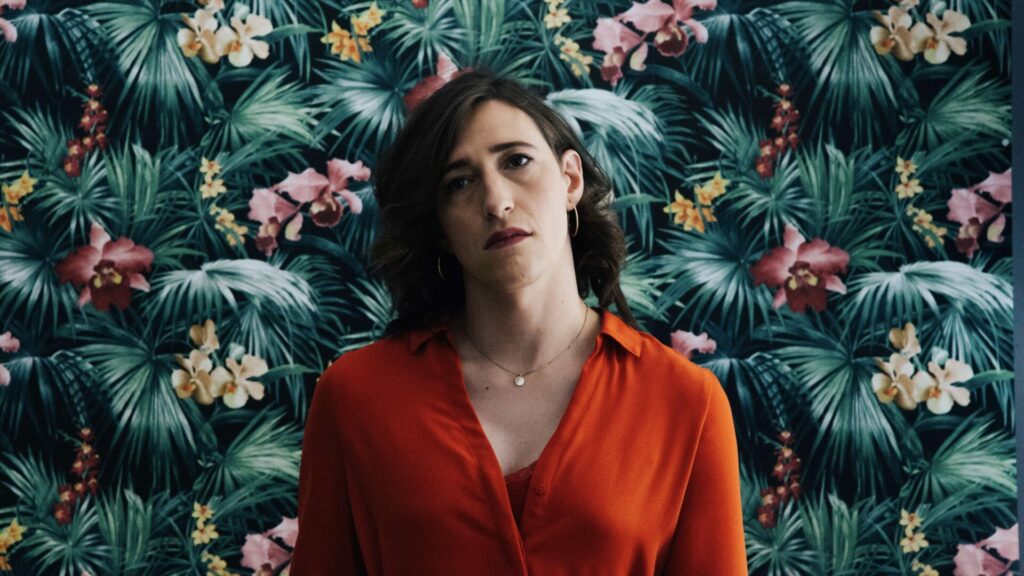
This one feels like a filmmaker’s film. The director feels very steeped in Spanish cinema and hasn’t shied away from a strong look, with high colour and a glossy feel that reminds me of Pedro Almodóvar. That he then chooses to point his camera at two different, incredibly strong women strengthens the effect even more. This is an impressive two-hander. We meet our two leads, a florist and her ex-wife, in a single environment and witness short bursts of conversation.
Watching the film allows the audience to fill in the gaps in the story without having to be told. We’ve selected a lot of trans stories in the Five Films programme over the years, and I love that no two are the same. This one feels different in that it presents the dilemma often faced by couples whose dynamic is altered when one transitions to live in their preferred gender. I love that it leaves us with a sense of hope despite the difficulties on both sides.
2022: Birthday Boy, directed by Judith Corro (Panama)
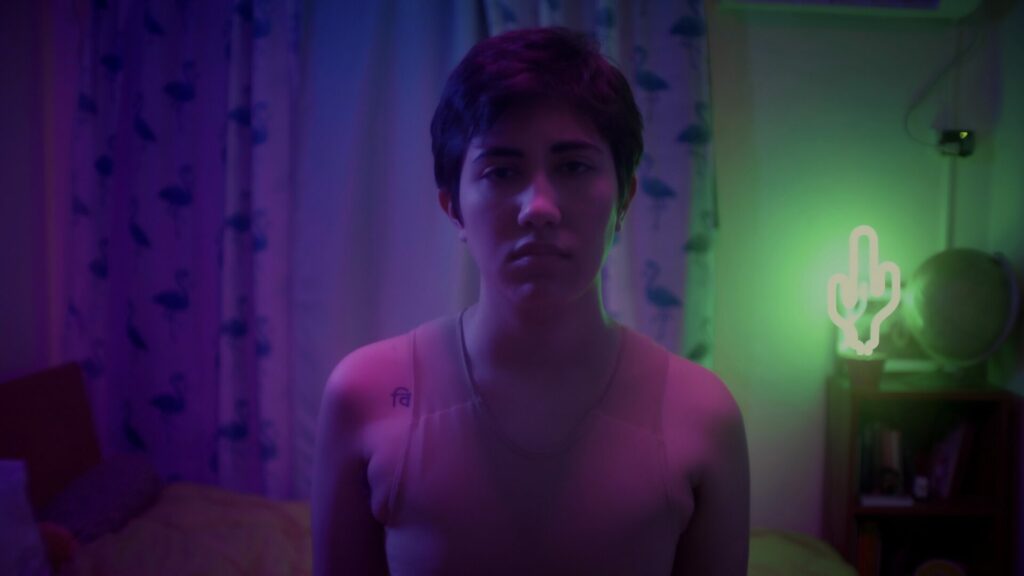
The film focuses on César, a trans man, who must choose whether he wants to meet his family’s expectations or stay in his true identity. For a non-queer audience, seeing an innocent young person grappling with the challenge of living their true life is a persuasive argument for acceptance. The milestone nature of birthdays means they are often the source of momentous change, and we often see them in films as the moment when everything changes. This one takes a typical family celebration and turns it upside down as a young trans boy takes his future into his own hands.
Beautiful performances make this a relatable story and bring home how important family acceptance can be to our queer identities. My family always let me be whoever I wanted to be, and films like this remind me how lucky I am to have had that support. As always when we platform a film featuring a young person, there was a slew of reaction in the comments from supportive viewers. As regards those who stayed silent, the hope is that stories like this start to scratch at the surface of discriminatory views.
2023: All I Know, directed by Obinna Robert Onyeri (Nigeria)
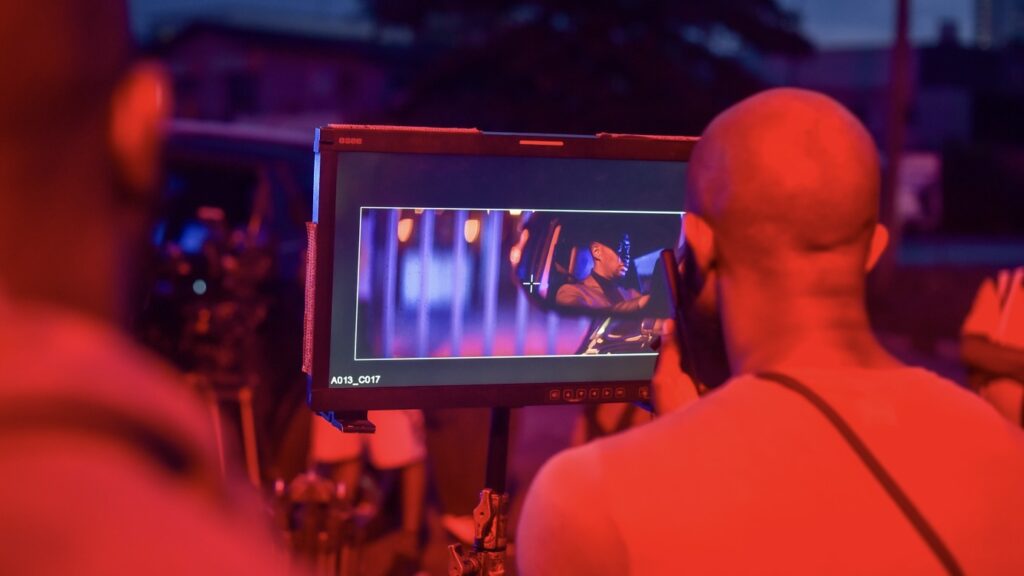
When we first launched Five Films, we noticed a real lack of films coming from African countries, and this is understandable. Nigeria is one of the places where life for queer communities has become increasingly fraught as the programme has continued so we felt lucky to have the chance to share this story. The film sees Ebube question whether his silence following Dapo’s disappearance after a hook-up could help or hinder his friend’s life. There is real tension to hook you in, but also a whole new story element that reminds audiences just how hard queer communities in some parts of the world have it.
While we love seeing big audiences enjoying the films, we’ve always kept a keen eye on where people are watching, as much as how many views we get. The stats frequently show significant audiences in some of the hardest places for gay people to live, and this film was one of the biggest examples of this with audiences in Nigeria leaping at the opportunity.
BFI Flare runs from 13-24 March 2024. The 2024 Five Films for Freedom selection is available online here. Full details are available here.
This feature first appeared in Attitude issue 357, available now.
